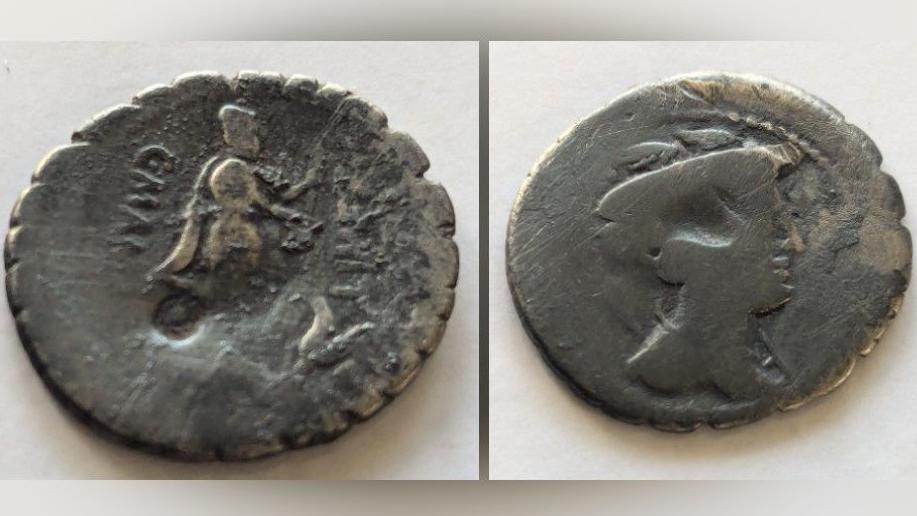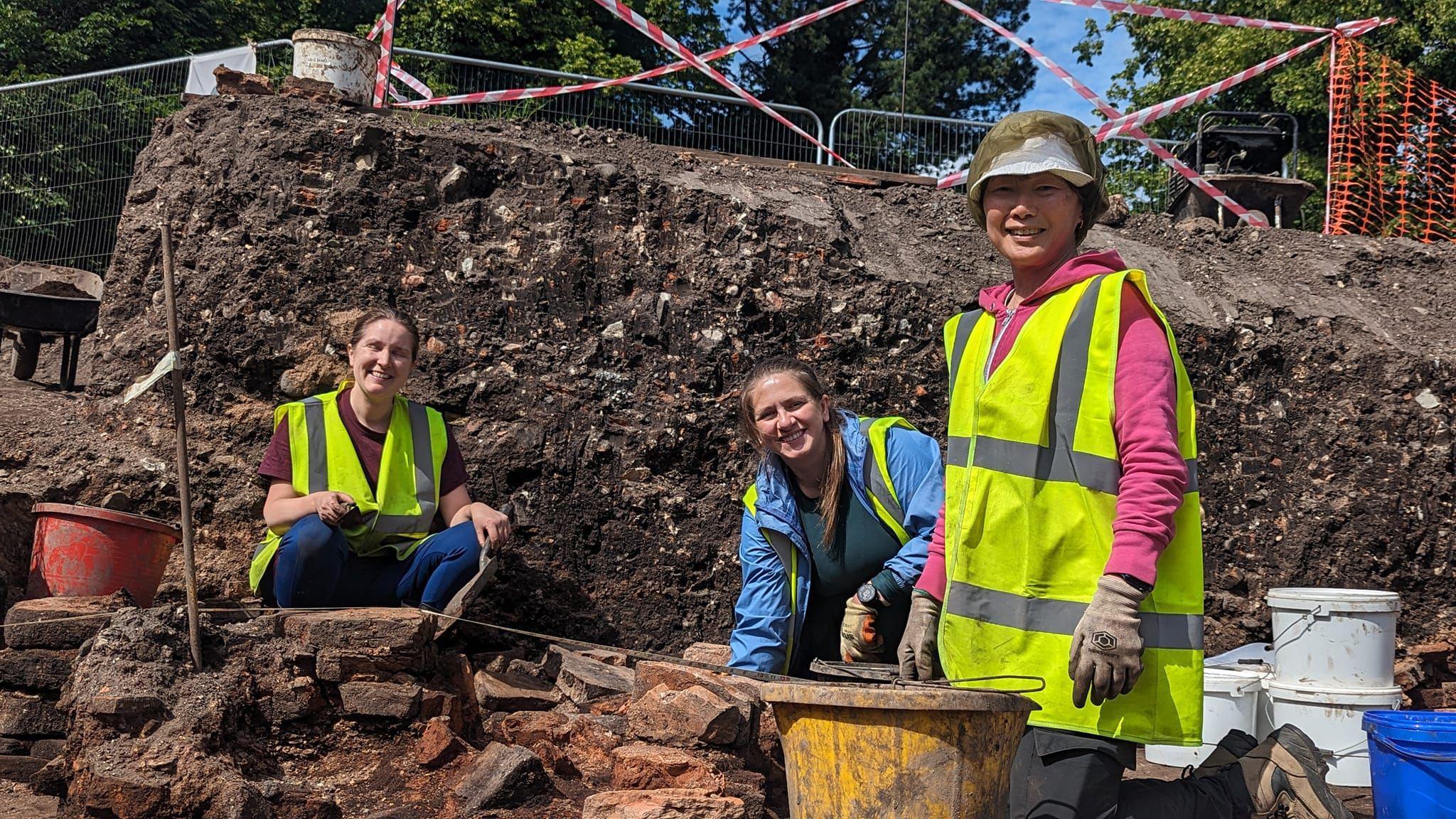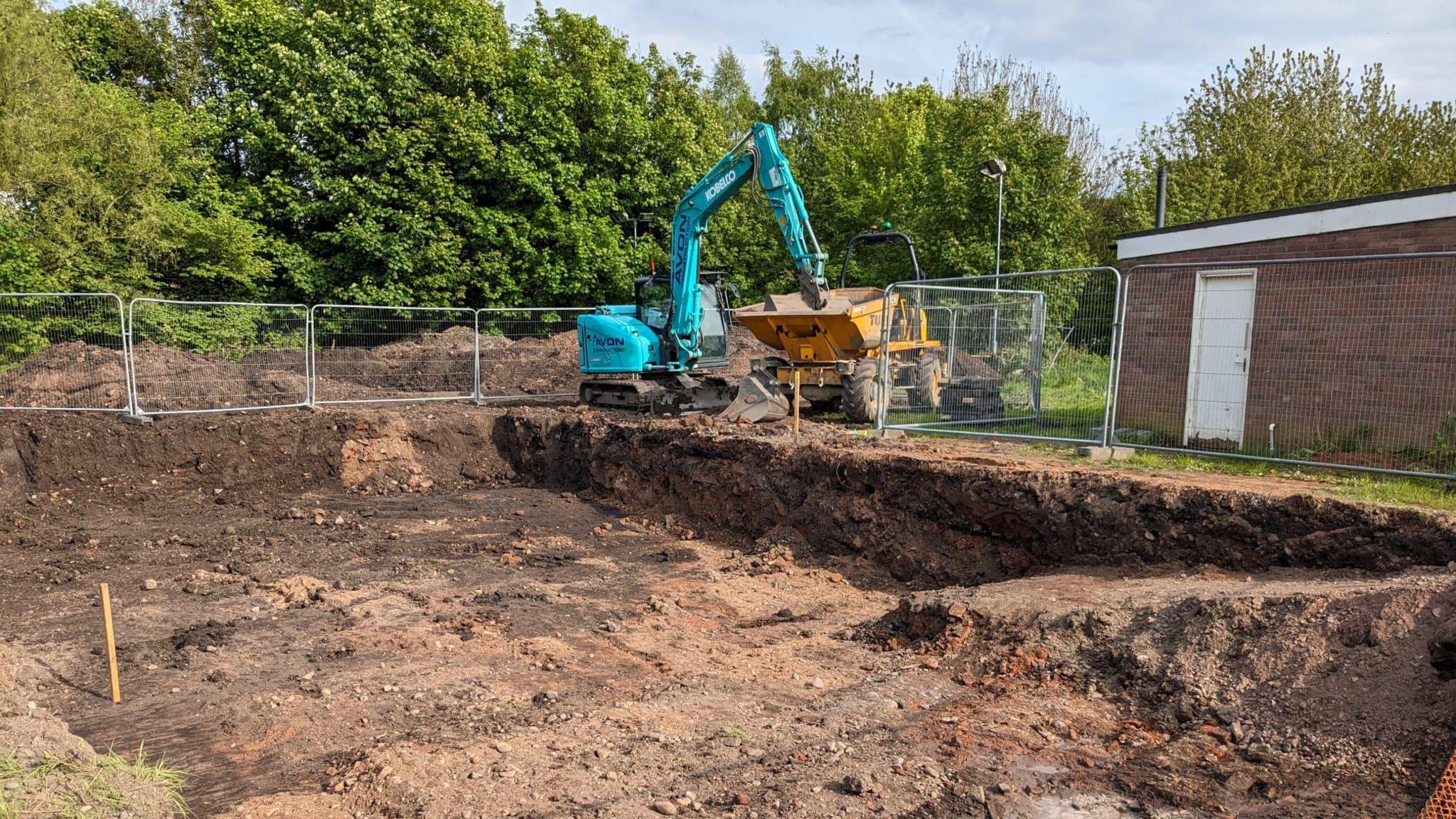Coin minted in 82BC discovered in Roman dig

The coin depicts Ulysses and the god Mercury
- Published
A Roman silver coin more than 2,100 years old has been discovered during a dig near an ancient bathhouse.
Some 2,000 items - including pottery, weapons, coins and semi-precious stones - have been found at the Carlisle Cricket Club site since 2021.
Now the team, made up of archaeologists and volunteers, has discovered a coin that is about 150 years older than anything they have previously found there.
The dig's lead archaeologist Frank Giecco said it was one of the oldest coins ever discovered in Cumbria.
This particular coin, known as a denarius, was minted in Rome in 82BC and predates the rule of Julius Caesar, Mr Giecco said.
On one side it depicts Ulysses walking his dog Argos as described in Homer's epic poem The Odyssey, and the head of the god Mercury on the other.
The coin is far older than anything else the team has found on the site and was minted about 150 years before the Romans arrived in Carlisle.
Roman forgery test
It is unclear how the coin ended up in Cumbria.
"If coins could talk, they would tell you a hell of a story," Mr Giecco said.
He said punch marks could also be seen on the coin which suggest it had been tested by Romans to determine whether it was a fake or not.
"Forgeries would have had a thin plating of silver over a copper core and so if you pushed into it - you’d expose it and it’d go through the silver," he explained.

The dig is made up of archaeologists and volunteers
Dr Clare Rowan, an academic who studies ancient coins at Warwick University, said it was "wonderful" to see the discovery.
She said examples of this coin had also been discovered in other parts of the UK including Sussex and Kent.
Other types of coins from this Roman era have also previously been found in Cumbria, she added.
"It is probable that this coin travelled to Britain well after it was minted," she said.
"In the Roman world, coins might circulate for a long time after they were issued."
Follow BBC Cumbria on X (formerly Twitter), external, Facebook, external and Instagram, external. Send your story ideas to northeastandcumbria@bbc.co.uk.
Related topics
More stories from BBC North East and Cumbria
- Published11 May 2024
